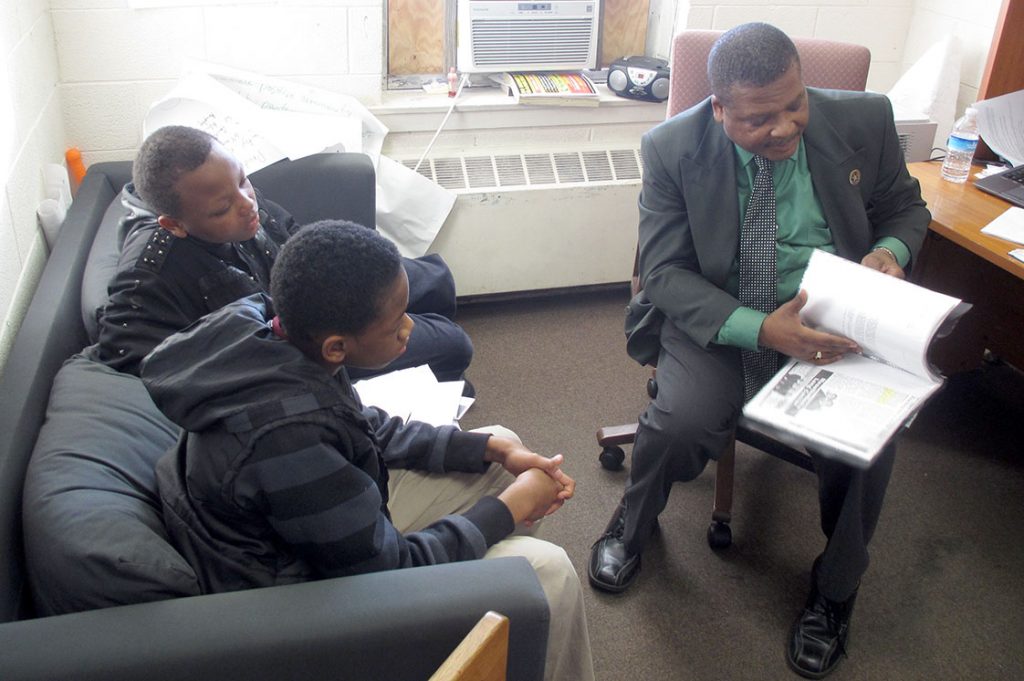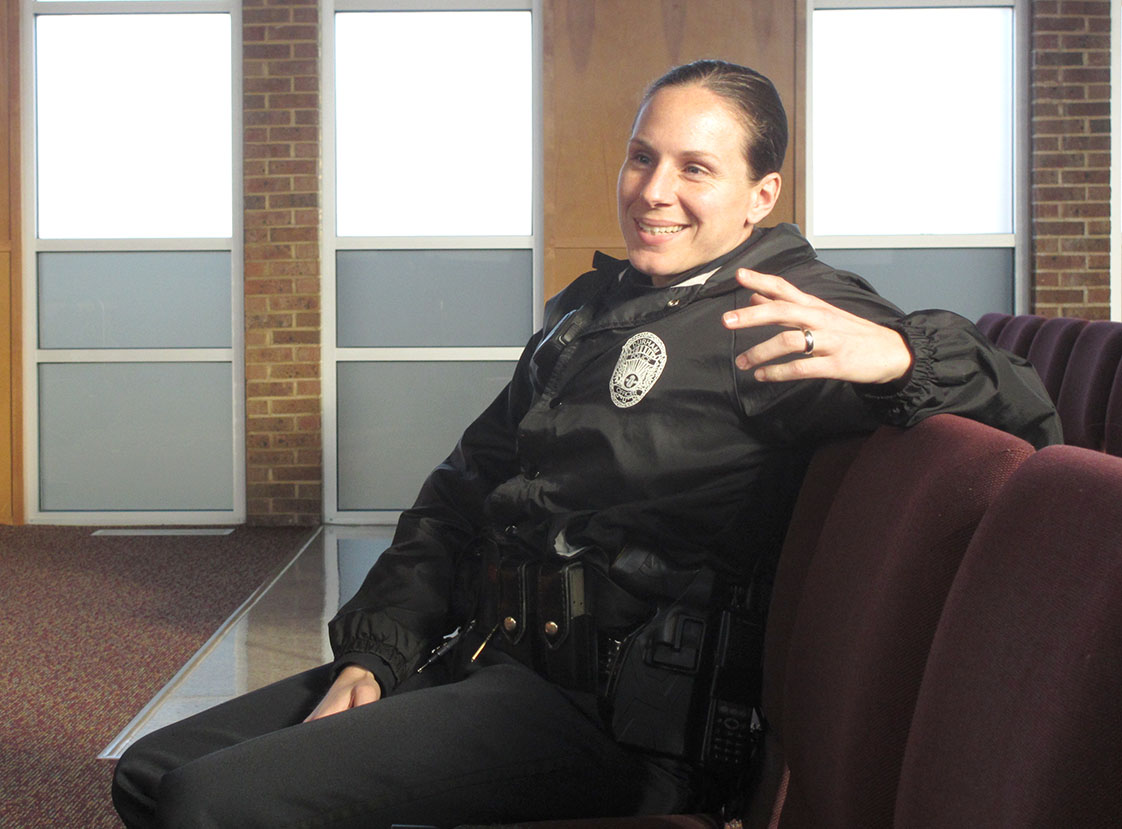
Two Boys & Girls Club members look on as James Johnson flips through a scrapbook from his time in the NYPD. The boys, ages 10 and 12, attended the first workshop. (Staff photo by Amber Younger)
With a warm smile, James Johnson reaches down for a handshake.
“What did we learn?” he asks the young man. “Good! Eye contact.”
At the Alston Avenue Salvation Army Boys & Girls Club, where he serves as executive director, Johnson strives to create an atmosphere of mutual respect. He wants the children to feel valuable. Poverty, he says, is not predominantly a lack of material goods, but a lack of relationships.
To the Durham Police Department and the Club, one relationship that is lacking is the relationship between children and police officers. On Jan. 13, police officers Michael Bonfiglio, Kristian Wheeler, Keith Crews and Everette Jeffries as well as investigator Thomas Scozzafava arrived at the Club to hold the first positive police interaction workshop.
Through hypothetical situations and Q&A sessions, the police officers were able to talk through respectful interactions with the children
“We wanted to make children see them as human,” said Johnson, who was a police officer for the New York City Police Department for over 20 years.
“One kid even asked what kind of doughnuts we like,” said Bonfiglio. “We said Krispy Kreme.”
Approximately 15 children between the ages of 10 and 12 were present for the first workshop, where they were taught that they do not need to be afraid of the police.
In 2014, Durham became the center of protests in North Carolina due to race relations. Following the death of a 17-year-old in the back of a police car, marches occurred in Durham in January and February. And after a grand jury announced in November that Ferguson, Missouri., police officer Darren Wilson would not be indicted for the death of 18-year-old Michael Brown, protests occurred in Durham almost weekly.
Children were witnesses of many of these demonstrations. Others learned about it on the news.

Officer Kristian Wheeler expresses the bittersweet experience of being a police officer in the community she grew up in. Wheeler participated in the first positive interaction workshop. (Staff photo by Amber Younger)
“We really want to evaluate where children are and meet them there,” Johnson said.
Conversations with the officers led to a realization for one 10-year-old boy. Now he says he knows that police officers can be afraid, too.
After the workshop the boy said, “I want to solve crime.”
Wheeler’s law enforcement aspirations also began in childhood.
“I’ve always wanted to be a cop,” Wheeler said. “It does make me feel good that I’m making somewhat of a difference – a small dent.”
The interaction workshop is not the only way the District 1 police unit is investing in the community’s children. More than 500 children have participated in the Durham Police Athletic League (PAL), in which officers build relationships with children by coaching basketball, soccer and baseball teams.
“We try to stay visible,” Jeffries said. “Our vision is to try to get the crime rate down.”
The Club wants to be a part of that. As most assaults are gang-related, and children tend to join gangs around the ages of 12 and 13, the target workshop age group is 10 to 12-year-olds. Officer Crews, a Durham native, hopes the workshop helps the children understand who the police are and where they come from.
“These are my brothers and sister,” Johnson said of the participating officers.
The skills Johnson developed as a police officer prepared him for his role at the Boys and Girls Club. While he was with the NYPD, he started a chapter of Law Enforcement Explorers, a program designed to build relationships between police officers and children. Johnson said the chapter reached over 3,000 children.
Growing up in the same high-crime area he worked in, Johnson developed an understanding of what young people from similar areas are going through. He said children fear police officers because they lack relationships, relationships that can open doors for mentorship.
“The value of being a prince is to learn what kings do,” Johnson said. “Man means responsibility. Who is a better example than law enforcement?”
For a printer-friendly-version of this story, click here.